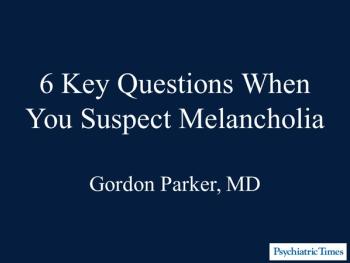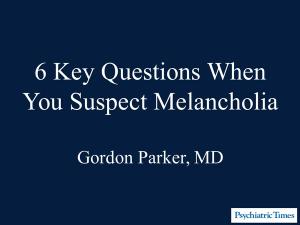
Most depressed people acknowledge impaired concentration and other related symptoms-but skilled clinicians can distinguish between non-melancholic depression and melancholia. How? They ask the right questions.

Most depressed people acknowledge impaired concentration and other related symptoms-but skilled clinicians can distinguish between non-melancholic depression and melancholia. How? They ask the right questions.

Functional vs structural; melancholic vs non-melancholic; and hierarchy of treatment are the focus.

Clinical observations have shown that patients who do not respond to antidepressants may show dramatic improvement if atypical antipsychotics are added to their regimen. How can successful patient outcomes be maximized?

Published: January 20th 2017 | Updated:

Published: October 1st 2002 | Updated:

Published: April 14th 2017 | Updated: